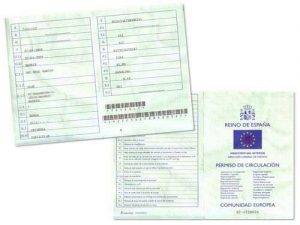How Long Does It Require To Register a Foreign Vehicle in Spain? Learn
How Long Does It Require To Register a Foreign Vehicle in Spain? Learn
Blog Article
Common Difficulties Encountered Throughout Foreign Vehicle Registrations and Exactly How to Get rid of Them
Browsing the complexities of international lorry enrollments can be a daunting job, laden with challenges that differ dramatically across jurisdictions. Concerns such as understanding regional regulations, getting over language barriers in vital paperwork, and reconciling discrepancies in lorry specs typically arise.

Recognizing Neighborhood Regulations
Navigating the complexities of international car registration begins with a comprehensive understanding of local laws. Each country has its particular regulations and needs regulating the registration of cars, which can vary substantially from one jurisdiction to an additional (Register a foreign Vehicle in Spain). It is critical for foreign vehicle proprietors to familiarize themselves with these regulations to make certain compliance and stay clear of prospective fines or lawful problems

Moreover, some jurisdictions mandate lorry assessments to establish compliance with regional safety and exhausts standards. This could require alterations to the automobile before it can be lawfully registered. Engaging with neighborhood authorities or seeking advice from lawful professionals can give clearness on these regulations.
Language Barriers in Documents
Language barriers present significant difficulties when it comes to the paperwork needed for foreign lorry registration. Several individuals run into difficulties in recognizing the specific needs described in regional laws, as these files are usually published in the official language of the host country. False impressions can lead to the submission of inaccurate or insufficient paperwork, leading to delays or denial of enrollment.
In addition, important papers, such as title acts, evidence of possession, and insurance coverage, may not have conveniently offered translations - Register a foreign Vehicle in Spain. This can develop confusion for foreign car owners who are not familiar with the regional terms and lawful lingo. Because of this, browsing the enrollment procedure comes to be cumbersome, frequently requiring extra effort and time to make sure conformity
To alleviate these problems, it is a good idea for international automobile proprietors to look for specialist translation solutions or get in touch with neighborhood specialists that can help in comprehending the requisite paperwork. Furthermore, government agencies may offer multilingual resources or standards to promote the enrollment procedure. Proactively attending to language barriers can streamline the registration experience, making certain that all called for papers are precisely prepared and submitted click this link according to local regulations.
Vehicle Requirements Disparities

Coming across vehicle spec discrepancies can produce significant obstacles for international car proprietors during the enrollment process. These disparities frequently emerge from differences in producing criteria, measurement systems, and regulatory demands in between the vehicle's country of beginning and the host nation. A vehicle that satisfies safety and security and emissions standards in one country might not straighten with the requirements required for registration in an additional, leading to hold-ups or outright rejections.
To conquer these difficulties, it is critical for foreign car owners to carry out complete study before launching the enrollment process. This includes comprehending the particular demands established by the regional authorities, such as security requirements, discharges levels, and find out this here any required adjustments. Engaging with a professional service concentrating on international car registration can also supply beneficial understandings and help in browsing these inconsistencies.
Paperwork plays an essential duty, so making certain that all technological requirements and adjustments are precisely reflected in the paperwork can mitigate concerns. Furthermore, preserving open communication with neighborhood enrollment authorities can offer clarity on any prospective inconsistencies, permitting timely resolution and effective enrollment of the lorry.
Browsing Tax Requirements
Recognizing the tax requirements linked with foreign vehicle enrollment is necessary for owners aiming to abide by local regulations. Each territory has particular tax obligation responsibilities that must be met before a lorry can be legitimately signed up. These may consist of import responsibilities, value-added tax obligations (VAT), and yearly car tax obligations, which can vary dramatically depending upon the vehicle's origin, worth, and specifications.
To browse these tax demands effectively, automobile owners ought to start by researching the certain Click This Link taxes suitable in their location. Consulting with local tax obligation authorities or a tax obligation professional with experience in international lorry registrations can supply clarity on the process and possible liabilities.
Furthermore, it is critical to maintain complete documents of the car's purchase and any kind of settlements made, as this will be required for tax obligation computations and potential audits. Proprietors should also recognize any kind of target dates associated with tax repayments to prevent fines or hold-ups in enrollment.
Inspection and Compliance Issues
Frequently dealing with evaluation and conformity concerns is vital for owners of foreign vehicles seeking to register them in a new jurisdiction. Each area has distinct regulations regarding vehicle safety, discharges, and alterations, which can posture substantial obstacles for proprietors strange with neighborhood requirements. Comprehending these demands is essential to avoid delays and added expenses.
One typical issue arises when international automobiles do not satisfy the host jurisdiction's safety and security and exhausts requirements. Owners need to proactively validate that their automobiles follow neighborhood guidelines, which might entail alterations or acquiring necessary documents from makers. Furthermore, many territories require a comprehensive assessment by an accredited facility, which can bring about additional complications if the lorry stops working to meet given criteria.
To browse these challenges, proprietors can speak with neighborhood car enrollment authorities or seek aid from experts aware of the registration procedure. Preparing all required documents in advancement, consisting of previous evaluation records and proof of compliance, can simplify the registration procedure. Ultimately, complete prep work and awareness of assessment needs can considerably boost the likelihood of a successful international vehicle registration.
Final Thought
In recap, the process of foreign automobile enrollment entails various difficulties, consisting of understanding of local policies, language obstacles in documents, discrepancies in vehicle specs, navigating of tax obligation needs, and inspection and compliance problems. Attending to these obstacles demands diligent research, usage of expert translation services, and examination with neighborhood authorities. Involving specialized solutions can make certain adherence to safety and security and emissions standards, ultimately helping with a smoother registration process and compliance with all relevant obligations.
Report this page